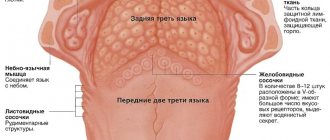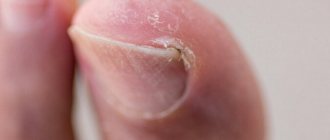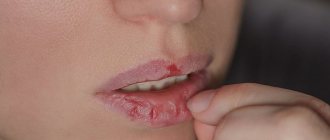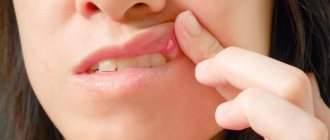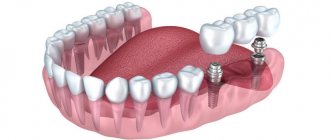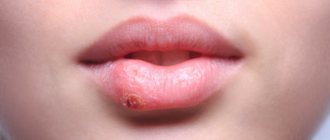A bad, unpleasant taste in the mouth can be the result of a number of diseases and even trivial everyday situations. It may occur after eating, due to a cough, runny nose, or be felt all the time, depending on the cause. Many prescription and over-the-counter medications can affect your sense of taste and cause an unpleasant sensation or a strange taste on the tongue.
The feeling of an unpleasant taste in the mouth is usually temporary and improves once the underlying cause of the problem is addressed. Consuming certain foods or tobacco products may cause an unpleasant or sour, bitter, or chemical taste in the mouth. Poor dental health (caries, other lesions) and poor oral hygiene are other potential causes of bad taste in the mouth.
Dysgeusia is the medical term for a disorder of taste. This can cause unpleasant taste sensations ranging from metallic to salty or bitter. Bad taste can also be described as unpleasant or rancid. The severity of the unpleasant taste varies greatly from person to person.
Dysgeusia can be caused by infections (eg, colds, flu, sinus infections), inflammation, injury, or environmental factors. A history of radiation therapy for head and neck cancer may also cause a bad taste in the mouth. Sometimes women in early pregnancy find that their sense of taste has changed, which can lead to an unpleasant taste in the mouth. Depending on the cause of the bad taste, there may be other accompanying symptoms such as nausea or dry mouth.
Causes of bad taste in the mouth in adults
Find out whether the strange taste in your mouth is caused by gum disease, medications, dry mouth, or a more serious medical condition. Sometimes an unpleasant taste in your mouth is completely normal. But if you've had a strange taste in your mouth for a few days, it could be a sign of an underlying dental or medical problem. Although the most common causes may not be serious, it is best to discuss treatment with your dentist.
Good to know
Oral diseases: KP guide on the treatment of stomatitis, gingivitis, caries
Oh, how sad I am!
Constant bitterness in the mouth occurs in those who eat too much fatty and fried foods or abuse alcohol, as well as in those who take antibiotics and allergy medications for a long time. But, if a strong bitterness in the mouth constantly bothers you, you need to rush to a gastroenterologist and do an ultrasound of the abdominal organs (liver and gall bladder). Causes of a bitter taste in the mouth:
pathologies of the liver, gallbladder and biliary tract - bitter bile enters the esophagus and mouth;
chronic cholecystitis and cholelithiasis - this may also cause pain under the right rib, nausea and vomiting.
“Express” diagnosis: what tests are done at Health Centers
Read more
Symptoms of bad taste in the mouth in adults
A strange or unpleasant taste in the mouth is, at best, an irritation, and at worst, it can be a symptom of a serious medical condition. If you have an unpleasant taste that never goes away or returns regularly, you should talk to your dentist or GP. The condition may be caused by problems in your mouth or another part of the body, or by medications or supplements you take.
Taste buds and nerves coming from your mouth help you enjoy the taste of food and drink, but they can also transmit the sensation of unpleasant taste. Patients report that their mouth tastes like old coins or has a metallic, rancid, bitter or burning, sour taste. Sometimes the taste is just bad, without being specific. The discomfort may last continuously for days or weeks, or may come and go. What causes a strange taste in your mouth?
Gum diseases. If you experience a strange metallic taste in your mouth, it is most likely caused by gum disease, such as gingivitis or periodontitis. According to experts, nearly half of adults age 30 and older suffer from some form of gum disease. Bad breath or a strange taste in the mouth is a common symptom.
What to do about it? Make an appointment with your dentist. Your dentist can examine your teeth, determine whether a bad taste in your mouth is a sign of gum disease, and create a treatment plan. Since gum disease can be caused by poor oral hygiene, it is also important to take good care of your teeth at home. Dentists recommend that all adults do the following:
- brush your teeth twice a day with fluoride toothpaste;
- clean the spaces between your teeth daily;
- Eat a healthy diet that limits sugary drinks and snacks;
- Visit your dentist regularly to prevent and treat oral diseases.
On a note
How to relieve gum inflammation at home: recommendations from doctors
Medicines. Studies have shown that more than 350 drugs in all major categories cause complaints of altered taste, often leaving a metallic or bitter taste in the mouth. Vitamins, supplements, and cancer treatments such as chemotherapy can also cause this problem.
Check with your doctor to find out if any medications you are currently taking may be causing a bitter taste in your mouth and to discuss alternatives.
Dry mouth. Xerostomia, or dry mouth, occurs when salivation decreases. In addition to leaving a strange taste in the mouth, it can cause difficulty tasting food, chewing, swallowing, and even speaking. It is a relatively common condition that can be caused by a variety of factors, including medications, aging, menopause and diabetes.
If you suspect you have dry mouth, make an appointment with your dentist. He will be able to confirm the diagnosis, relieve discomfort and treat the problem to prevent complications.
Burning mouth syndrome. Maybe, in addition to the bad taste in your mouth, you also feel as if your mouth was burned by hot coffee? You may be suffering from burning mouth syndrome. This condition can affect the roof of the mouth, tongue, gums, back of the mouth or throat, and the inside of the cheeks. Often accompanied by a bitter or metallic taste. If you experience a burning sensation in your mouth and a strange taste, make an appointment with your dentist, who will confirm the diagnosis and develop an appropriate treatment plan.
Oral candidiasis. Thrush is a fungal infection in the mouth that can leave a sweet or metallic taste. This often causes white patches to appear on the tongue, mouth, or throat. Oral thrush is common in denture wearers and people with weak immune systems.
Make an appointment with your dentist if you think you have thrush. In the meantime, practice good oral hygiene. If possible, clean your dentures regularly.
Respiratory infections. Some diseases or infections can cause a strange taste in your mouth. Tonsillitis, sinus infections, ear infections, and colds can leave a bitter or metallic taste in the mouth.
If a strange taste in your mouth is a sign of a cold or other minor infection, it will likely go away once the infection is treated. If symptoms persist, consult your doctor. In the meantime, drink plenty of fluids and rest.
To the point
As if I ate mustard: what causes a bitter taste in the mouth
Pregnancy. Hormones present during pregnancy can cause dysgeusia, or changes in the sense of taste. They can cause a woman to lose her taste for foods she previously loved, or to develop cravings for foods she has always disliked. Pregnancy hormones can also cause a metallic or sour taste in the mouth, even if a woman doesn't eat anything.
What to do about it? Be patient. Although dysgeusia can last throughout the entire 9 months, it most often occurs in the first trimester. It may be annoying, but it won't last forever and is nothing to worry about. Maintain good oral hygiene and eat what you can.
More serious illnesses. If there are no other symptoms, a metallic taste in the mouth is most likely not a sign of a serious illness. However, in some cases, a strange metallic taste in the mouth may be a sign of diabetes, neurological conditions such as dementia, liver disease, kidney disease, or even certain types of cancer.
If you experience other severe symptoms or a metallic taste in your mouth, contact your doctor. Be sure to talk about all the symptoms you are experiencing, even if they seem unrelated.
Symptoms
To determine what disease or phenomenon the taste of mold in the mouth is a sign of, you need to clarify in combination with what other problems it is detected and when exactly it bothers you.
For example, if a person has been in a room with high humidity for a long time, where there is musty, stale air, then along with the unpleasant odor, a headache, cough, and runny nose appear. It is possible that infection with pathogenic microorganisms has occurred. Similar symptoms also occur in people who work in the textile, agricultural, paper or chemical industries.
In the presence of viral or infectious diseases of some organs, additional concerns include sore throat, runny nose, inflammatory processes in the oral cavity, etc. If the taste is associated with the functioning of the gastrointestinal tract, then the patient complains of the usual symptoms in the form of frustration, nausea, vomiting and etc.
Based on these manifestations, doctors are able to suspect what specific problem influenced the appearance of the unpleasant feeling and the functioning of which organ needs to be checked more carefully.
Treatment of bad taste in the mouth in adults
The fastest way to find the root of the problem is to make an appointment with your dentist. If you experience other serious symptoms besides a strange taste in your mouth, or suspect your medications may be causing it, see your GP.
Diagnostics
An unpleasant taste in the mouth that does not go away on its own or returns regularly should not be ignored. Talk to your dentist or primary care physician so they can determine the cause and prescribe treatment if necessary.
Diagnostics
When a moldy taste occurs, you need to decide what it is and whether you should worry about it. You should consult a doctor as soon as possible and have your body checked. To do this, it is enough to visit a therapist, who, if necessary, can refer you to other specialized specialists - dentist, otolaryngologist, gastroenterologist, pulmonologist, etc.
First, a standard examination and history taking procedure is carried out. It is important that women or men who consult a doctor talk about all the symptoms that bother them and about the specifics of their work. Further, if necessary, the following examinations are prescribed:
- Ultrasound of internal organs;
- oral scrapings;
- blood tests;
- checking sputum for the presence of Aspergillus fungi;
- X-ray of the lungs;
- antibody test;
- biopsy;
- immunogram.
Depending on what the tests showed and what problem was discovered, appropriate therapy is prescribed.
Prevention
To prevent dangerous diseases due to fungal infections entering the body, you must adhere to the following rules:
- Regularly and thoroughly ventilate the room, monitor humidity levels, and clean.
- When working in production, you should adhere to safety measures, wear a respirator or protective masks.
- Don't eat spoiled foods.
- Since infection most often occurs against the background of reduced immunity, you should try to lead a healthy lifestyle and treat various diseases in a timely manner.
- You should visit your dentist twice a year to prevent infections in your mouth.
- Avoid prolonged exposure to mold indoors.
- Change your toothbrush every 3-4 months.
Treatment of digestive diseases
If the oral cavity is sanitized, but the smell remains, you need to contact a gastroenterologist. Before treating halitosis, an examination will be carried out to find the cause of the disorders. Gastritis and ulcers are associated with poor diet, but inflammation of the gastric mucosa is supported by Helicobacter bacteria. You need to get rid of them comprehensively.
To do this, the doctor will prescribe the following groups of medications:
- antacids – to reduce acidity;
- antibiotics – drugs to kill bacteria;
- healing agents - bismuth nitrate or De-nol to restore the mucous membrane.
In the treatment of cardiac sphincter insufficiency, when the opening between the esophagus and the stomach does not close, antacids are also used, supplemented with prokinetics that improve peristalsis. Treatment of digestive diseases is impossible without following a special diet.
How to improve your oral health
Good hygiene helps get rid of bad breath. If the cause is dense tartar, you need to visit the dentist and remove it mechanically. The toothbrush is powerless in this case.
Any dental defects must be treated. Carious cavities are cleaned and filled, and rotting tooth roots are removed. If necessary, prostheses are installed.
To get rid of the smell, you need to change your toothbrush and choose the right toothpaste. The brush should have medium hardness in order to clean the teeth well and not injure the gums. For better oral hygiene, you can buy a special tongue brush. Toothpaste is chosen based on gum sensitivity and related problems. The dentist will help you choose the product.
To thoroughly clean the spaces between teeth, it is not recommended to use wooden toothpicks. A special thread or brush will do the job better. Some threads contain mint fibers that add a pleasant aroma to your breath. And silver ions will stop the proliferation of pathogenic bacteria.
Teeth should be brushed morning and evening. Before going to bed, after hygiene procedures, you do not need to eat. Leftover food at night will become a breeding ground for the proliferation of microorganisms that damage tooth enamel.
Ways to combat unpleasant odor
It is not always possible to independently guess that your breath smells bad. A person does not perceive an unpleasant aroma, so he can judge its appearance by indirect signs. If you have any suspicions, you can use the edge of a spoon to collect plaque from your tongue and smell it. The condition of the saliva is judged by licking the wrist and waiting for it to dry.
You can get rid of an unpleasant odor using traditional methods. At home, a decoction of dill is used to rinse the mouth. At home you can prepare an infusion of medicinal herbs with anti-inflammatory and antibacterial effects:
- chamomile;
- Oak bark;
- sage;
- mint;
- calendula;
- St. John's wort.
At home, a decoction is prepared from a mixture of several herbs to increase effectiveness. The infusion must be highly concentrated to suppress the growth of bacteria and cleanse the oral cavity.
If halitosis is associated with eating foul-smelling ingredients, parsley or celery root will help get rid of it. They block foul odors, and chewing the fibrous structure cleanses the teeth. Observance of a drinking regime relieves halitosis. Clean water cleanses the oral cavity and keeps saliva in a liquid state.
The reason why these methods do not help are pathologies of digestion and metabolism. You can get rid of them at home only under the guidance of a doctor.
Why does there be an unpleasant odor?
The oral cavity is the beginning of the digestive tract. It contains many bacteria; saliva contains enzymes that can break down carbohydrates. Therefore, after waking up, all people have bad breath. But this condition is not considered a pathology; it is enough to brush your teeth for the smell to disappear.
A persistent unpleasant aroma appears after eating dishes with garlic, onions, and some spices. When alcohol is abused, the sour stench persists for a day or more, which is associated with the metabolism of ethyl alcohol in the liver and the release of its vapors through the lungs.
A large number of unpleasant aromas accompany diseases that affect metabolism. In patients with diabetes who do not follow a diet or use insulin incorrectly, when ketone bodies accumulate in the blood, the smell of acetone appears on their breath. People suffering from kidney failure will repel those around them with the unpleasant aroma of urea, which the kidneys cannot remove from the body.
Common causes in adults are pathologies of the digestive tract. Halitosis is caused by:
- gastritis with high acidity;
- stomach ulcer, duodenal ulcer;
- cardiac sphincter insufficiency;
- esophageal diverticula;
- malignant tumors of the stomach or esophagus.
Respiratory diseases can also cause an unpleasant odor. Air from the lungs passes through the oropharynx, so it can partially leave the body through the mouth. It smells unpleasant with purulent diseases of the sinuses, chronic runny nose or tonsillitis.

